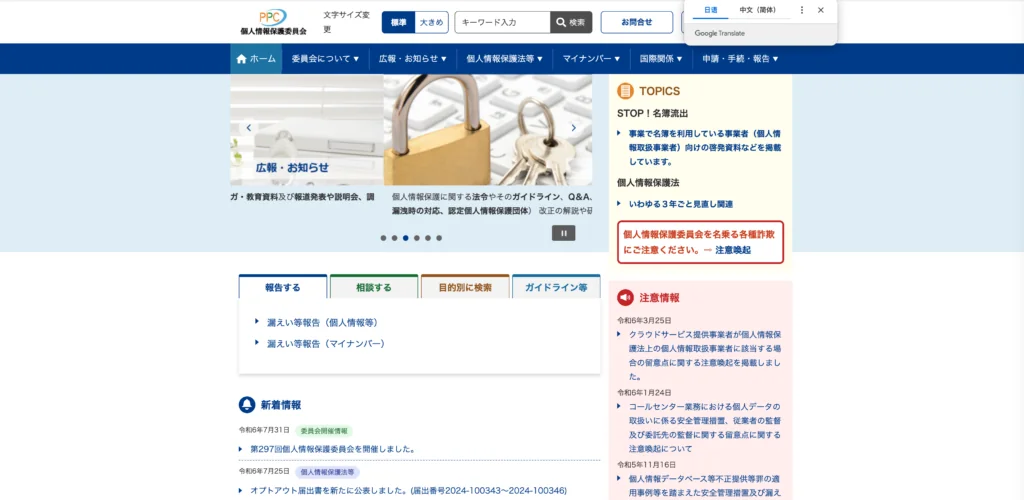As one of the most important economies in Asia and an advanced digital society, Japan has become a hot spot for brands to go global due to its mature eCommerce market and high consumer purchasing power.
Japan's data protection legal system has undergone important revisions in 2015 and 2022, which have put forward strict requirements for corporate data compliance.
While brands conducting business through third-party marketplaces can easily abide by local regulations thanks to each platform’s policies, companies running self-operated branded eCommerce stores face significant compliance challenges when conducting cross-border operations and directly processing user data. Understanding and complying with these data regulations is the basis for successful market entry and avoiding unnecessary compensation or legal liability.
This article will explore in-depth the key data regulations that self-operated eCommerce brands must understand and comply with when expanding to Japan.
You can also read about Data Protection Laws in Southeast Asia: Overview by Country (2024)Each SEA country has particular regulations regarding data privacy. These are the key compliance aspects that companies entering Southeast Asian markets must know.data regulations in Southeast Asia and Data Protection Laws in Australia: Overview (2024)This article serves as a data compliance guide for eCommerce businesses expanding into Australia, analyzing privacy law changes and compliance needs for cross-border eCommerce.Australia according to the latest laws.
1. Legal Background: Important Revisions to Japan's Act on the Protection of Personal Information (APPI)
Japan's data protection legal system is centered on the Act on the Protection of Personal Information (APPI). The Act was originally enacted in 2003, was significantly revised in 2015, and further updated in 2022 and 2023 to adapt to the development of the digital society and the expansion of the use of personal information. The revised law imposes stricter requirements on the collection, use, storage, and transmission of data, such as the expansion of data transfer obligations, the strengthening of data subject rights, specific requirements for international data transfer, and the emphasis on privacy policies and user consent.
In terms of scope of application, it is different from the Data Protection Laws in Australia: Overview (2024)This article serves as a data compliance guide for eCommerce businesses expanding into Australia, analyzing privacy law changes and compliance needs for cross-border eCommerce.Scope of Australia's privacy legislation, as APPI applies to all individuals or entities that process personal information in Japan, whether they are companies or government agencies. In addition, even overseas personal information controllers (PICs) are subject to APPI if they process the personal information of data subjects in Japan, which includes companies engaged in cross-border eCommerce.
In the context of the revision of the Personal Information Protection Law, the powers and responsibilities of the regulatory agency PPC (Personal Information Protection Commission) have been strengthened, including investigation, consultation, and enforcement powers. PPC has also issued specific data protection guidelines for different industries, and cross-border eCommerce companies should follow the corresponding guidelines according to their industries.
2. Key Regulations for branded eCommerce companies

1. Act on Protection of Personal Information (APPI)
This is the core law of data protection in Japan, which specifies in detail the principles for handling personal information, including the rules for collecting, using, storing, and transmitting personal information, as well as the rights of data subjects. For example, if an eCommerce company collects the email addresses of Japanese customers for sending marketing information, it must clearly inform the customers of the purpose of collection and obtain their consent.
2. The "My Number" Act
Businesses that handle information related to Japan’s "My Number", a unique personal identification number, are required to comply with special provisions of the Act.
3. Personal Information Protection Commission (PPC) Guidelines and Q&A
The guidelines issued by PPC provide specific explanations and application examples of APPI provisions, which are instructive for corporate compliance. For example, it explains how companies should properly handle user data leaks. The guidelines also guide eCommerce companies on how and when to obtain the consent of data subjects, especially when processing sensitive information or using cookies.
4. Industry-specific guidelines
Data protection guidelines for specific industries such as finance, healthcare, employment, and telecommunications are usually issued by relevant regulatory authorities. For example, if an eCommerce website provides online medical consultation services, it needs to comply with the data protection guidelines of the medical industry to ensure the privacy and security of patient data.
3. Cross-border eCommerce Enterprise Operations
1. Compliance with basic data protection principles
When entering the Japanese market, Chinese brand eCommerce companies must ensure that their data processing activities comply with the basic principles of APPI. This includes but is not limited to:
| Principle | Description | Article Index |
| Collection Limitation | Only the minimum amount of personal information necessary to achieve business purposes is collected. | APPI 5th principle. |
| Data Quality | Ensure the personal information held is accurate, and updated or corrected where necessary. | APPI 6th principle. |
| Clear Purpose of Use | The use of personal information must be consistent with the purpose notified in advance, and the data must not be used beyond the scope of that purpose. | APPI 7th principle. |
| Safety Guarantee | Take appropriate technical and management measures to protect personal information and prevent data leakage, loss, or illegal access. | APPI 9th principle. |
2. Protection of certain personal data

Cross-border eCommerce companies operating in Japan need to pay special attention to the protection of certain personal data, including but not limited to medical records, genetic information, financial information, etc. According to the Act on the Protection of Personal Information (APPI), certain personal data is considered sensitive information and requires higher standards of protection.
For children’s data, if children are unable to understand the consequences of their consent, this should be obtained from their legal guardians.
For special categories of personal data, including sensitive information such as race, religion, health status, genetic information, etc., companies must take strict security measures to protect and prevent data leakage, loss, or unauthorized access. When processing special categories of personal data, companies must not discriminate based on this information.
3. Response to data subject rights
Cross-border eCommerce companies operating in Japan must ensure that they respect and promptly respond to the rights of data subjects, including but not limited to the right to data access, correction, deletion (right to be forgotten), and data portability.
It is important to note that the data subject has the right to object, that is, refuse the processing of their personal information under certain circumstances.
4. Data Breach Prevention and Response
The legal basis for data breach prevention and response mainly comes from the relevant provisions of the Act on the Protection of Personal Information (APPI), which stipulate that personal information processors (including cross-border eCommerce companies) must notify the Personal Information Protection Commission (PPC) and affected individuals when a data breach occurs.
Once a data breach occurs, companies should take measures to mitigate the adverse impact on the affected information subjects. If companies fail to comply with legal requirements for data breach prevention and response, they may face legal liability, including fines and other sanctions.
5. Compliance of cross-border data transfer
The revised APPI law imposes more extensive obligations on data transfers, especially to overseas entities. Cross-border eCommerce companies are required to ensure that the level of protection of customer data is at least equivalent to that in Japan before transferring it to overseas servers.
When companies sign contracts with overseas data recipients, they must include data protection clauses that clearly stipulate the use, storage, security measures, and rights of data subjects.
In addition, even if data is stored or processed overseas, companies must ensure that data subjects can exercise their rights of access and correction, conduct risk assessments where necessary, and take risk mitigation measures.
Ensuring Legal Compliance with TMO
As a highly digital society, Japan requires companies to have a deeper understanding of and comply with local data protection laws when entering its market through cross-border eCommerce. By establishing a strong data compliance system, companies can not only avoid legal risks but also gain the trust and support of consumers in the fierce market competition.
TMO has many years of experience in implementing overseas eCommerce projects for brands. Our data and regulatory consultants will conduct website compliance scans for target markets such as Japan, assess all aspects of the website, and assist you in solving problems related to data protection, infrastructure protection, security testing, user authentication and access management, and data auditing, and put them into practice during eCommerce website development.
If your company is considering overseas expansion, you can learn about our Global eCommerce Solutions.
For a more detailed regulations exploration and their implementation in cross-border eCommerce, you can also check out our learn about our eCommerce Legal Compliance Services, where we interpret the laws and regulations of your target market, including consumer protection, data compliance, privacy compliance, and eCommerce, as well as assist you in formulating appropriate compliance strategies. You can also directly contact our eCommerce experts!














